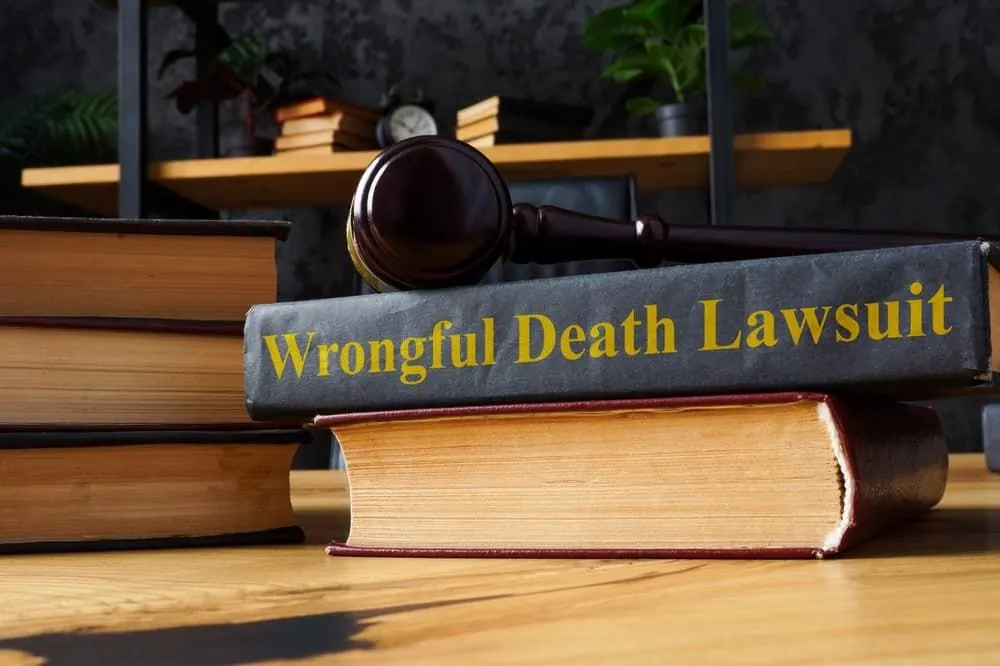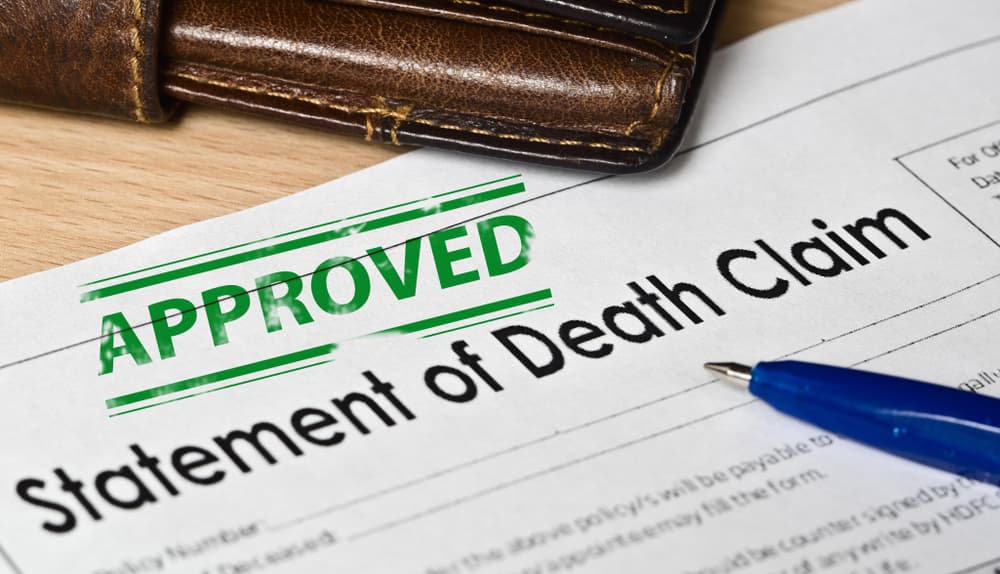Losing a loved one suddenly is a heartbreaking experience that turns your world upside down. The pain can be even worse when that loss happens because of someone else's careless actions. If you're facing this difficult situation, you might be wondering if you can seek justice through a wrongful death lawsuit.
Understanding who can file a wrongful death lawsuit can save you from making mistakes that can delay your case. A Winder wrongful death lawyer can make the whole process easier.
What Is a Wrongful Death Lawsuit?

Before deciding who can file a wrongful death lawsuit, let's clarify this legal action. A wrongful death lawsuit is a civil case brought against a person or organization whose negligent or intentional actions caused someone's death.
These cases seek financial compensation for the survivors' losses, which may include:
- Funeral and burial expenses
- Medical bills from the deceased's final injury or illness
- Lost income and benefits that the deceased may have earned
- Loss of care, guidance, and companionship
- Pain and suffering experienced by the deceased before death
- Emotional distress suffered by family members
A wrongful death case is different from a criminal case. Even if prosecutors pursue a criminal trial for the death, you can still file a separate wrongful death lawsuit in civil court. For example, if someone dies in a drunk driving crash, the driver might face criminal charges from the government and a wrongful death lawsuit from the victim's family.
Who Can File Depends on State Laws
One of the most important things to understand about wrongful death claims is that the rules about who can file vary significantly from state to state. Each state has its laws determining who has the right to bring a wrongful death lawsuit.
A wrongful death lawyer can explain the specific rules in your state, but here's a general overview of how these laws typically work across the country.
Immediate Family Members

In most states, immediate family members have the right to file a wrongful death lawsuit. This typically includes:
Surviving Spouses
In nearly every state, the surviving spouse has the primary right to file a wrongful death lawsuit. Courts recognize that spouses typically suffer the most immediate financial and emotional impact from the loss.
Children
Children of the deceased person, including adopted children, usually have the right to file a wrongful death lawsuit. In some states, they can only file if there is no surviving spouse; in others, they can join the spouse's lawsuit.
Parents
Parents can typically file wrongful death lawsuits for the death of their minor children. The situation becomes more complex when it comes to adult children.
In some states, parents can file wrongful death lawsuits for adult children only if the adult child had no spouse or children of their own. Other states allow parents to file regardless of whether the adult child was married or had children.
Estate Representatives
In many states, the personal representative or executor of the deceased person's estate has the exclusive right to file a wrongful death lawsuit. This person is either named in the deceased's will or appointed by the court if there was no will.
The personal representative files the lawsuit on behalf of the estate and surviving family members. The court distributes any compensation from the lawsuit to eligible family members based on state law or the terms outlined in the will.
This system can create situations where the person filing the lawsuit isn't necessarily a family member. For example, someone might name a trusted friend as their estate executor, giving that friend the responsibility of filing any wrongful death lawsuit.
Extended Family Members
Some states allow extended family members to file wrongful death lawsuits, especially if there are no immediate family members or if they were financially dependent on the deceased person.
Siblings
Brothers and sisters typically have limited rights to file wrongful death lawsuits. In most states, siblings can only file if there are no surviving spouses, children, or parents. However, some states make exceptions if the siblings depend financially on the deceased.
Grandparents
Like siblings, grandparents usually can only file wrongful death lawsuits if there are no closer family members. However, if grandparents raised their grandchild as the primary caregivers, they may have stronger legal standing.
Financial Dependents
Some states let individuals who relied financially on the deceased pursue a wrongful death claim, even without a blood or legal family relationship. This might include domestic partners, stepchildren, or others who relied on the deceased for financial support.
Special Cases and Exceptions
Several special cases don't fit neatly into the categories above.
Unmarried Partners
In most states, unmarried partners don't have the right to file wrongful death lawsuits, even if they lived together for many years. However, some states recognize domestic partnerships or common-law marriages, which may grant partners the same rights as legally married spouses.
Same-Sex Partners
Since the legalization of same-sex marriage nationwide in 2015, legally married same-sex spouses have the same rights to file wrongful death lawsuits as opposite-sex spouses. However, for deaths that occurred before this ruling, the legal situation can be more complicated.
If you're in a same-sex relationship and have lost your partner, a wrongful death attorney can explain your rights based on when the death happened and whether the law recognized your relationship at that time.
Ex-Spouses
Former spouses usually don't have the right to file wrongful death lawsuits unless they're doing so on behalf of minor children they had with the deceased. However, if the divorce decree included ongoing financial support like alimony, there might be a basis for a claim in some states.
Multiple Claimants
When multiple family members have the right to file a wrongful death lawsuit, complications can arise. States handle this in different ways:
- Some require a single lawsuit filed on behalf of all eligible family members
- Others allow separate lawsuits but consolidate them in court
- Some establish a priority order, giving certain family members precedence over others
These situations can become contentious, with family members disagreeing about whether to file a lawsuit, how to pursue it, or how to divide any resulting compensation. A skilled wrongful death lawyer can help navigate these sensitive family dynamics while protecting everyone's legal rights.
Time Limits for Filing a Wrongful Death Lawsuit
Regardless of who has the right to file, there are strict time limits for wrongful death lawsuits called statutes of limitations. These typically range from one to three years after the death, though some circumstances may extend this period.
How Wrongful Death Claims Differ from Survival Actions

Adding to the complexity, two types of legal claims may arise after someone dies due to negligence: wrongful death claims and survival actions.
A wrongful death claim focuses on the losses suffered by the surviving family members, such as lost financial support and emotional suffering.
A survival action focuses on the pain and losses the deceased endured before passing away. This might include their medical expenses, lost earnings, and pain and suffering from the time of injury until death.
Family members might have the right to bring these different types of claims. Some states require filing both claims together, while others handle them separately.
A wrongful death lawyer can explain how these claims work in your state and who has the right to file each type of claim.
Proving a Wrongful Death Case
Whoever files the wrongful death lawsuit must prove four key elements:
- Duty of care: The defendant had a legal obligation to act with reasonable care toward the deceased
- Breach of duty: The defendant failed to meet that obligation
- Causation: The defendant's actions or inaction directly caused the death
- Damages: The death resulted in actual damages to the survivors
Proving these elements requires substantial evidence, which might include:
- Medical records
- Accident reports
- Professional testimony
- Witness statements
- Financial documentation
This is another reason why having a wrongful death lawyer is so important. They know what evidence is needed and how to obtain it, even when records are difficult to access.
Common Types of Wrongful Death Cases
Wrongful death lawsuits can arise from many different situations, including:
Car and Vehicle Accidents

Vehicle crashes are among the most common causes of wrongful death lawsuits. These cases might involve drunk drivers, distracted drivers, or commercial trucking companies with unsafe practices.
Medical Malpractice
When healthcare providers make serious mistakes that result in death, the family may have grounds for a wrongful death lawsuit. These might involve surgical errors, medication mistakes, misdiagnosis, or failure to treat serious conditions.
Medical malpractice cases are particularly complex because they involve extensive medical knowledge and often face strong resistance from healthcare providers and their insurance companies.
Workplace Accidents
Fatal accidents in the workplace may lead to wrongful death claims, particularly in dangerous industries like construction, manufacturing, and mining.
While workers' compensation generally limits lawsuits against employers, there are exceptions when extreme negligence is involved. Plaintiffs may also sue third parties, such as equipment manufacturers or subcontractors, even when they cannot sue the employer.
Product Liability
Defective products that cause death can lead to wrongful death lawsuits against manufacturers, distributors, or retailers. These might involve dangerous medications, faulty vehicle components, unsafe children's products, or malfunctioning industrial equipment.
Nursing Home Abuse or Neglect
When elderly residents die due to abuse or neglect in nursing homes or assisted living facilities, their family members may file wrongful death lawsuits against the facility, its staff, or its corporate owners.
These cases often involve failures to provide basic care, medication errors, inadequate supervision, or failure to address medical emergencies promptly.
How a Wrongful Death Lawyer Helps
Navigating a wrongful death lawsuit is challenging, especially while you're grieving. A wrongful death lawyer provides invaluable guidance through this challenging process.
A skilled wrongful death attorney will:
- Determine who has the legal right to file the lawsuit
- Identify all potentially responsible parties
- Calculate the full extent of financial and emotional damages
- Gather and preserve critical evidence
- Handle all legal paperwork and court filings
- Negotiate with insurance companies and defendants
- Represent you at trial if you cannot reach a fair settlement
Most wrongful death lawyers work on a contingency fee basis, meaning they only get paid if they win your case. This makes legal representation accessible even if you don't have money for upfront legal fees.
How Compensation Is Shared Among Family Members
If a wrongful death lawsuit succeeds, eligible family members must share the resulting compensation. This distribution follows state laws and may be subject to court approval.
In some states, the wrongful death statute specifies a formula for dividing the compensation. For example, a state might allocate 50 percent to the surviving spouse and divide the remaining 50 percent equally among the children.
Other states give the court discretion to determine a fair distribution based on each family member's relationship with the deceased and their financial needs.
When minor children are involved, their portion of the compensation is typically placed in a trust or other protected account until they reach adulthood.
A wrongful death lawyer explains how compensation applies to your case and works to ensure fair distribution among all family members.
Taking the First Steps in a Wrongful Death Case

Taking prompt action is vital if you believe you may have grounds for a wrongful death lawsuit. Here are the first steps to consider:
- Consult with a wrongful death lawyer as soon as possible to understand your rights and any time limits that apply.
- Gather important documents like death certificates, medical records, accident reports, and financial information about the deceased.
- Avoid discussing the case on social media or with representatives from insurance companies before speaking with your lawyer.
- If no one has named a personal representative for the deceased’s estate, appoint one promptly.
- Keep track of expenses related to the death, including funeral costs, medical bills, and lost income.
These steps will help establish a strong foundation for your case while protecting your legal rights during a vulnerable time.
Finding Strength Through Justice
A wrongful death lawsuit won't bring your loved one back. Still, it can provide accountability, financial security, and the peace of mind from knowing you've done everything possible to protect your family.
If you've lost someone due to another's negligence, don't face this difficult time alone. Contact a personal injury attorney who can guide you through the legal process with compassion and experience.